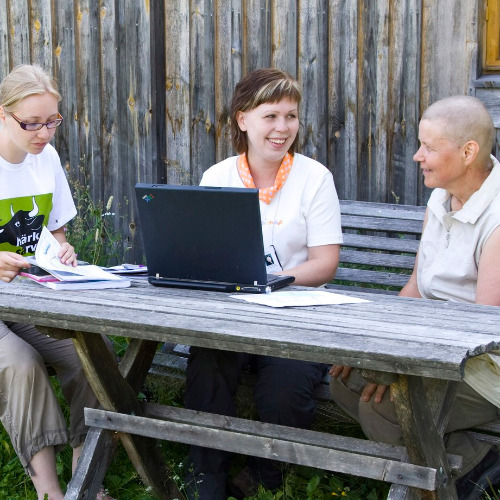
Daily life of digital exclusion in rural areas
The world is digitizing at an accelerating pace. In people’s everyday lives, this is reflected in new ways of using services, changed working practices, and new opportunities and forms of participation. However, the benefits of digitization are not distributed evenly. At the same time, while the majority of the population uses various digital devices and services quite fluently and feels that they benefit from them, some people are left out of the digitizing society.
The aim of the RuralDIGI research project is not only to produce a deeper understanding of the factors behind digital exclusion, especially in the rural context, but also to find ways to prevent digital exclusion and solve the identified problems.
The research project will be implemented in collaboration between the Kokkola University Consortium of the University of Jyväskylä and the Karelian Institute of the University of Eastern Finland from 6/2023 to 3/2025. The project is funded by the Ministry of Agriculture and Forestry, based on a proposal from the project group set up by the Rural Policy Council, from the funds directed to national rural research and development projects by Makera.

